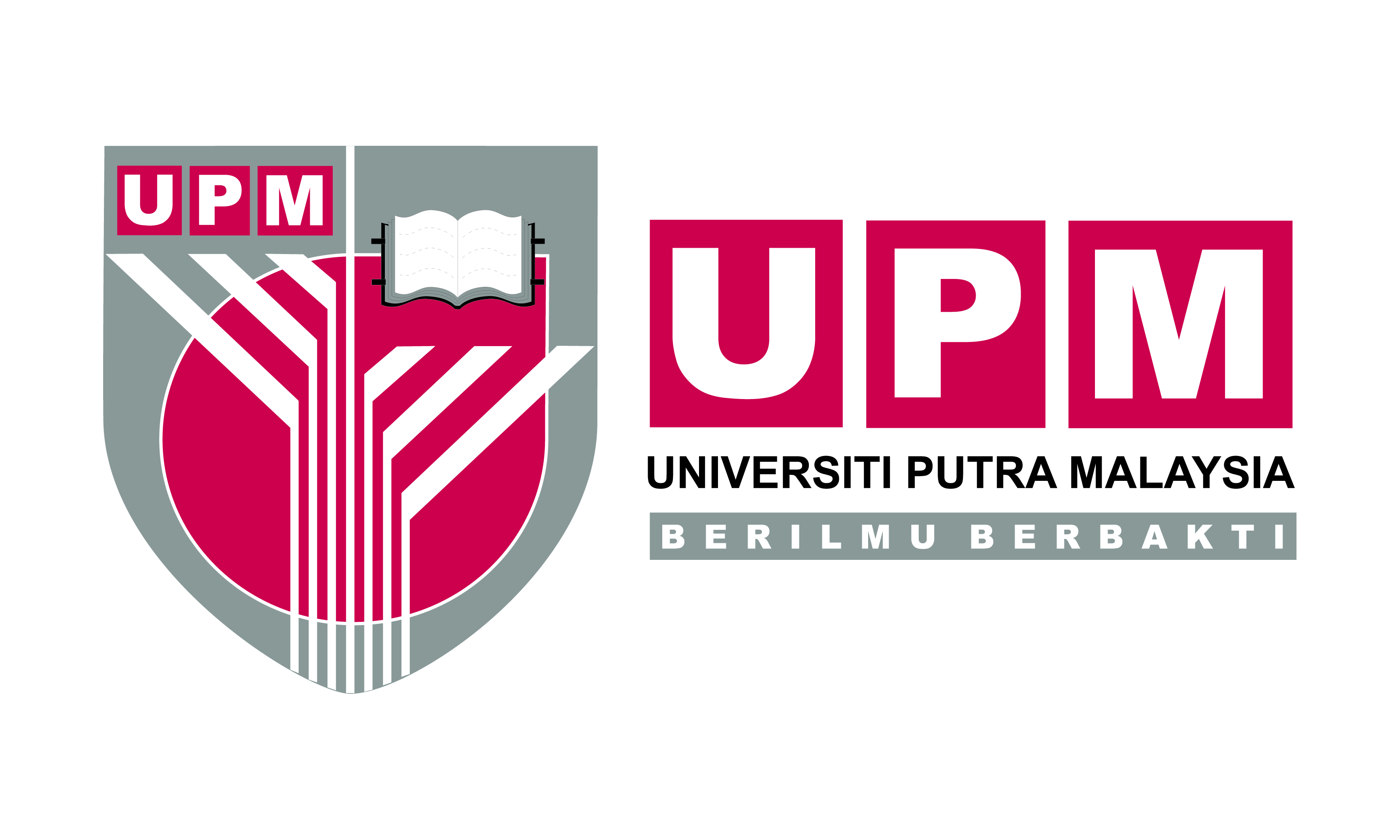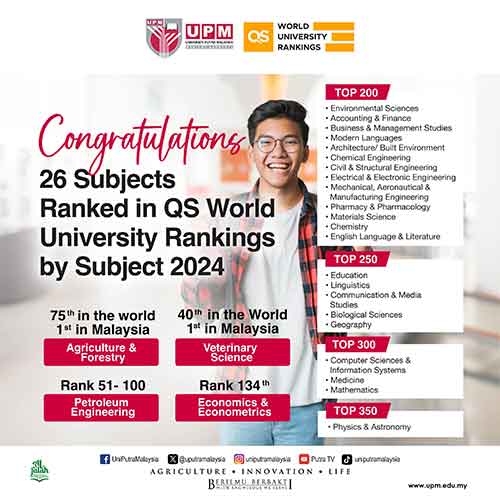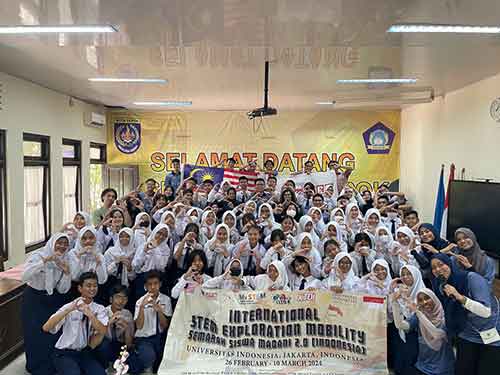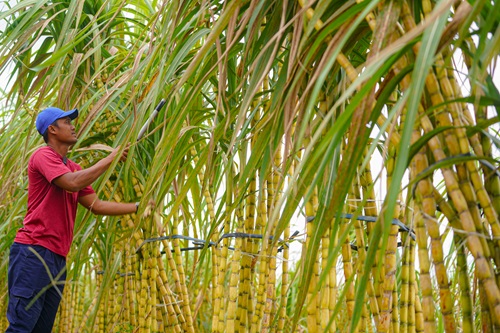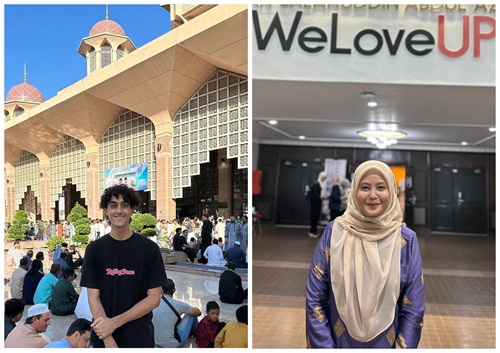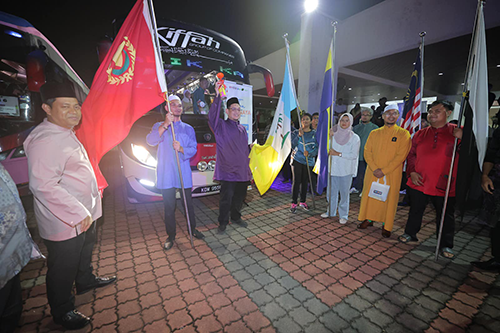By Nurul Syuhadah bt Mohamad Ali
Photo by Noor Azreen Awang
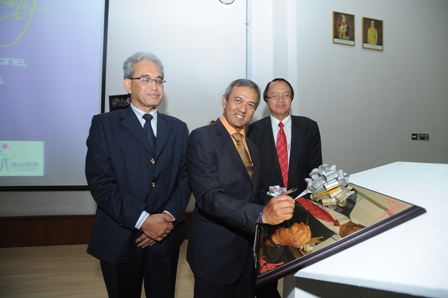
SERDANG, 12 Feb (UPM) – Universiti Putra Malaysia (UPM) is now the national coordinating centre (NCO) in the One Health University Network (MyOHUN) of universities in the nation and region in the fight against infectious diseases and pandemic.
The network and key NCO role of UPM was launched by Vice Chancellor, Prof Dato’ Dr Mohd Fauzi Hj Ramlan here on 7 Feb, 2014.
The establishment of the NCO of MyOHUN at UPM was made possible through a cooperative agreement inked by UPM with the US Agency for International Development (DAI), Emerging Pandemic Threats Programme, RESPOND Project on 23 Sept 2013, said Prof Dr Mohd Hair Bejo, chairman of MhyOHUN, in his welcoming speech.
Prof Dr Mohd Hair, who is Dean of the Faculty of Veterinary Medicine UPM, said UPM’s management committee has agreed to their joining the South East Asia One Health University Network (SEAOHUN) comprising Malaysia (MyOHUN), Indonesia (INOHUN), Thailand (THOHUN) and Vietnam (VOHUN), 10 universities and 14 faculties.
Also in the regional network are the University of Minnesota and Tuff University of USA.

Currently, the Faculty of Medicine and Faculty of Health Sciences of Universiti Kebangsaan Malaysia (UKM) are members of SEAOHUN, along with the Faculty of Veterinary Medicine of UPM.
The other core universities in SEAOHUN are the Hanoi School of Public Health, the Hanoi Medical University, the Hanoi University of Agriculture, Chiang Mai University, Mahidol University, Institut Pertanian Bogor, Universitas Indonesia and Universitas Gadjah Mada.
Prof Dr Mohd Hair said it is the vision of SEAOHUN/MyOHUN to foster sustainable trans-disciplinary capacity building to respond to emerging and re-emerging infectious and zoonotic diseases with 4 main objectives. They are:-
* to promote and advance the One Health approach for control and emerging and re-emerging infectious and zoonotic diseases;
* to improve the competencies of One Health professionals;
* to build a One Health evidence base through research, and
* to build cadres of trained professionals to be One Health’s current and future leaders.
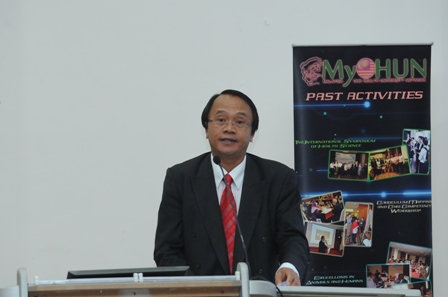
“One Health is the integrative effort of multiple/trans-disciplines working locally, nationally, and globally to attain optimal health for people, animals and the environment,” he said.
Noting that 75 percent of emerging and re-emerging diseases are either zoonotic or vector-borne, he said outbreaks of diseases such as the H1N1 (Swine influenza), severe acute respiratory syndrome (SARS), H5N1 (Highly Pathogenic Influenza) and the Nipah virus had brought awareness “that we need to be prepared for pandemic diseases to come,” he added.
Prof Dr Mohd Hair also said that MyOHUN must first develop adequate capacities to deliver.
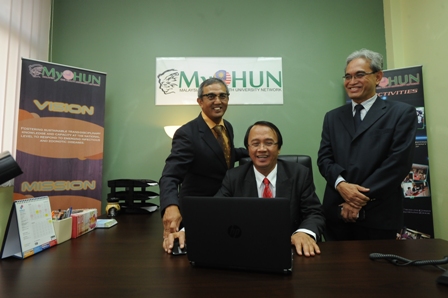
In this respect, they are inviting faculties from all over Malaysia, government agencies and the private sector to be part of the network so that they could work together to being independent and self-sustaining in their One Health initiatives.
To date, they had secured US$197,403 from DAI-USAID-RESPONSE and US$32,903 cost share from UPM, US$372,000 from DAI-USAID-RESPONSE for MyOHUN’s 8 local activities for a year (2013-2014).
There are also travel grants available for SEAOHUN members to attend seminars and so on.
In his opening remarks, Prof Dato Dr Fauzi said he is confident that MyOHUN would create potential and successful collaboration with all concerned.
One of the objectives of the UPM Strategic Plan 2014 – 2020 is to enhance the networking services industry with the corporate sectors, community and the government.
“We believe, with such collaboration, we will share expertise, experiences, success and technologies to enhance the ability and capacity of all of society in this country, he said. – UPM
- nsma/kgo
